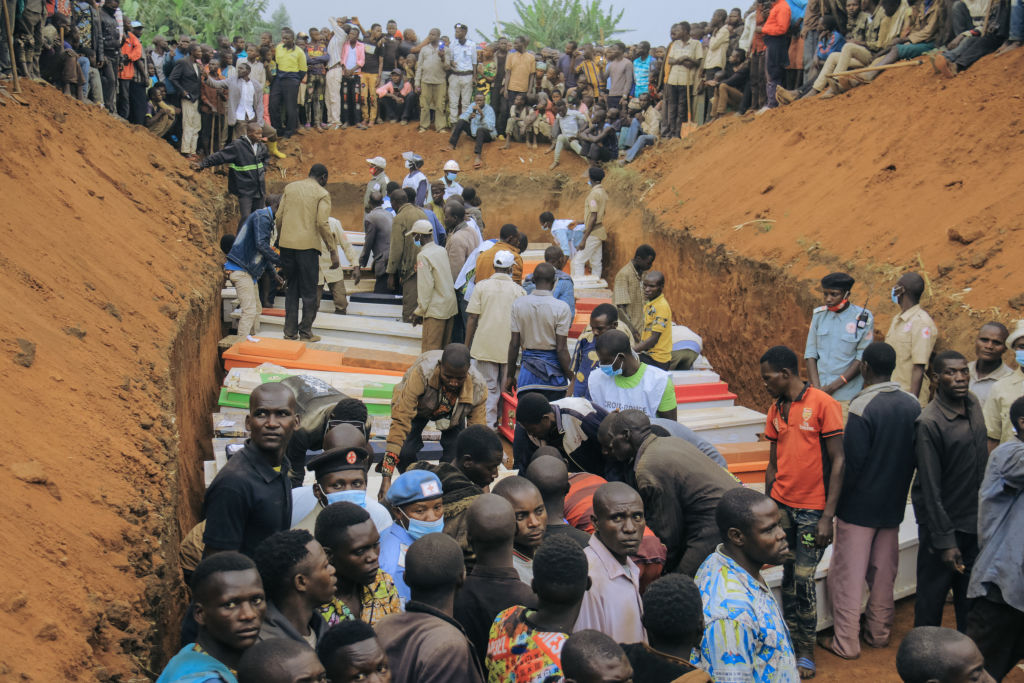Fighting in DRC’s Ituri Province Creates Massive Displacement
ADF STAFF
Since mid-March, tens of thousands of people have fled communities in the Ituri province of eastern Democratic Republic of the Congo (DRC) as they try to escape attacks by CODECO, a former farmers’ cooperative that has become one of dozens of armed militias destabilizing the region.
Since the beginning of 2017, fighting in Ituri has forced about 1.5 million people from their homes, according to the United Nations.
CODECO fighters, who are members of the Lendu group, began as the Coopérative pour le développement du Congo. They evolved into a militant group during the period of intense interethnic fighting between the Lendu and their pastoralist neighbors, the Hema, between 1999 and 2003.
Fighting between the groups has flared up repeatedly over the past 50 years. The current wave of violence began in 2017. It accelerated in November 2022 with each group trying to capture land and mines in the mineral-rich region. CODECO says it is defending its people against the Hema and the Congolese military.
The fighting increased after the DRC diverted its armed forces to North Kivu province to confront M23 insurgents.
“When the army left Ituri the first consequence was that the armed groups took control of all the areas where the [army] used to control,” Dieudonné Lossa Dhekana, provincial coordinator for the Société Civile Forces Vives de L’Ituri, an umbrella organization of civil society groups, told Devex. “Now they are looting, killing people and raping women.”
Operating out of the Wago forest, CODECO members have attacked military bases, burned villages and killed residents in Ituri. The Hema have formed their own self-defense group, known as Zaire, to fight back.
Rehema Dive fled her Hema village after witnessing multiple CODECO attacks in 2018. Among the dead was her uncle, who was killed and mutilated as he fled with a group during one assault.
Diva sought safety in the larger community of Drodro, about 60 kilometers from the regional capital, Bunia. Today, violence has emptied Drodro of its Hema residents, who have fled elsewhere for shelter from the marauding militias.
Dive now lives with her 3-year-old son in the Rho camp near a U.N. base outside Drodro.
“If the fighting comes here and, if by chance we survive, we’ll have to flee,” she told Devex.
At the local hospital, Dr. James Semire wanders darkened hallways in a largely empty building as he waits for possible patients. He lives at the hospital after fleeing his home.
Most Hema residents left Drodro in mid-March after CODECO fighters set up attack positions on a hill near the community in broad daylight, he told DW.
“Suddenly, someone came to tell me that there were gunshots outside,” Semire told DW. “There are repeated attacks. This delays the return of people here because it creates doubts.”
Nearly half of the people displaced by fighting — 690,000, according to the United Nations — are living at camps in the Djugu area. They are a mix of pastoralists and farmers, many of them telling stories about nighttime raids on their communities by armed groups.
North of Drodro, the Rho camp has tripled in size since November to more than 65,000. Another camp, Plaine Savo, was attacked on February 1 by CODECO and other militias wielding guns and machetes. The attack left 62 people dead and shelters in ashes, survivors told the U.N.
With more than 120 militias competing for territory in eastern DRC, the Lendu-Hema conflict in Ituri has been overshadowed by other events, such as the international effort to drive the militia group M23 out of nearby North Kivu province.
Yet people continue to flee the violence in Ituri.
“The movement of the displaced hasn’t stopped,” a spokesman for the nongovernmental organization Intersos identified as Adamu told the U.N. at a camp outside Bulé. “The situation remains precarious and unpredictable.”


Comments are closed.